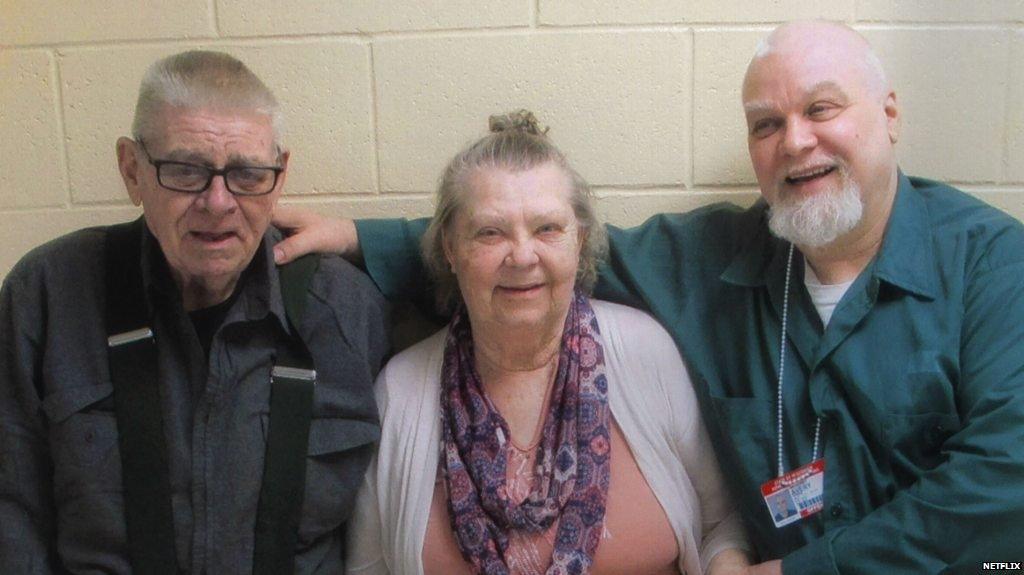Is our growing obsession with true crime a problem?
- Published
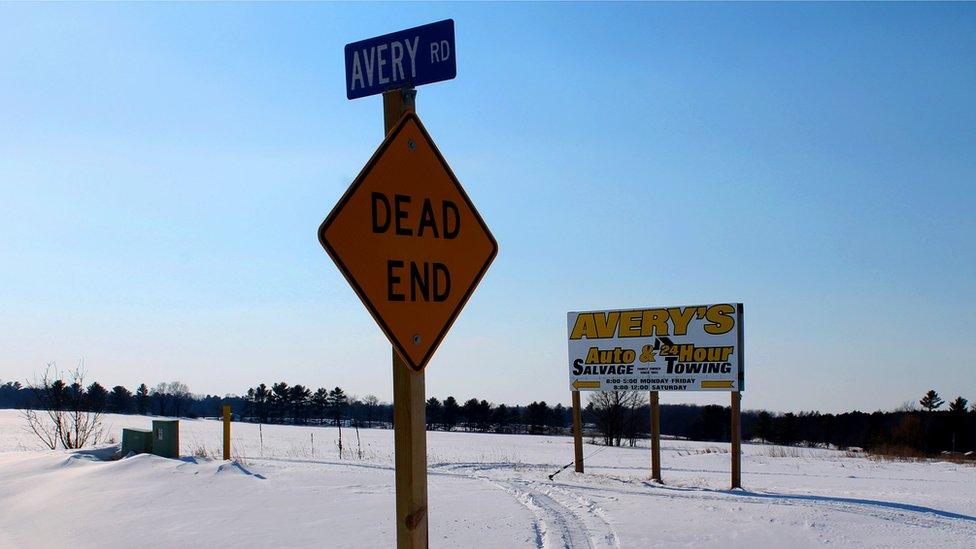
Shows like Making a Murderer have given criminal cases worldwide attention
From series like Making a Murderer to podcasts like Serial - true crime seems to be everywhere these last few years.
I put my hands up and admit it - I'm an addict.
For reasons even I don't understand, crime documentaries have become my default way to unwind.
If I have friends over, I might make an embarrassed joke about my streaming suggestions - but the evidence suggests I'm not alone.
The genre's growth is inescapable. Almost every week there seems to be a new documentary released and not without controversy.
Some warn we risk glamorising notorious killers and erasing their victims with the coverage. Others have accused programme makers of being selective with evidence.
So, do victims and the communities directly affected, think our fascination with true crime is problematic?

The survivor
Kathy Kleiner was only 20 years old when she was attacked by Ted Bundy.
He beat her in bed with a piece of wood in the Chi Omega house at Florida State University in 1978.
Before entering her room, Bundy had murdered two of her sorority sisters as they slept.
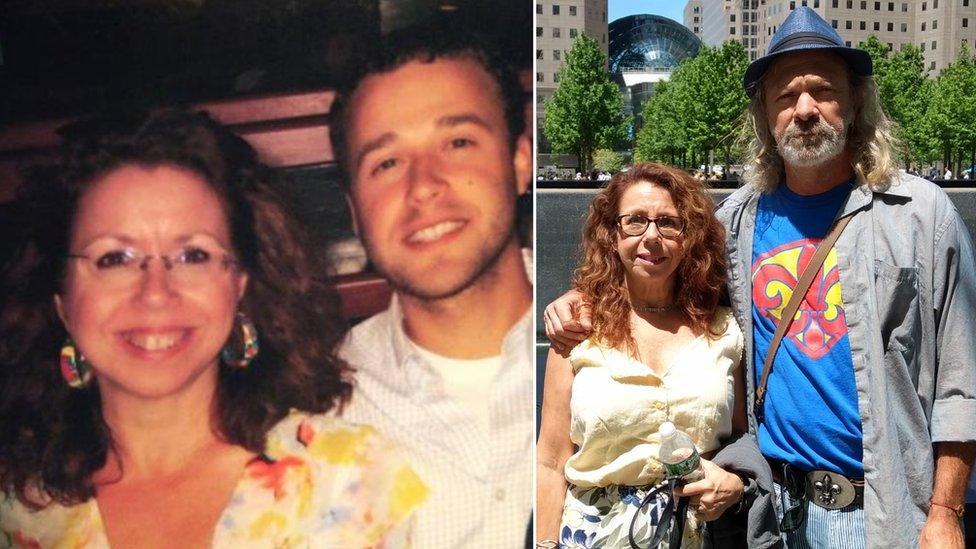
Kathy with her son Michael (left) and husband (right)
Kathy was left with a shattered jaw and severe facial injuries. Her mouth had to be wired shut, forcing her to leave college.
Now 61, Kathy says she hadn't spoken about the experience much until US media recently tracked her down.
This year marks 30 years since Ted Bundy's execution. You can probably tell because the serial killer seems to be everywhere in 2019.
In February it was reported that Netflix had paid millions to secure US rights to a new movie starring heartthrob actor Zac Efron as Bundy.
The announcement came as the trailer caused uproar online, with some accusing it of sexualising the killer.
Netflix, who had also just released a series focusing on interviews with Bundy, even weighed in on social media, external.
Reflecting on what it was like to be continually reminded of Bundy in popular culture, Kathy says: "I did not ask to be put on the journey with him in his life - with his killing and his abuse."
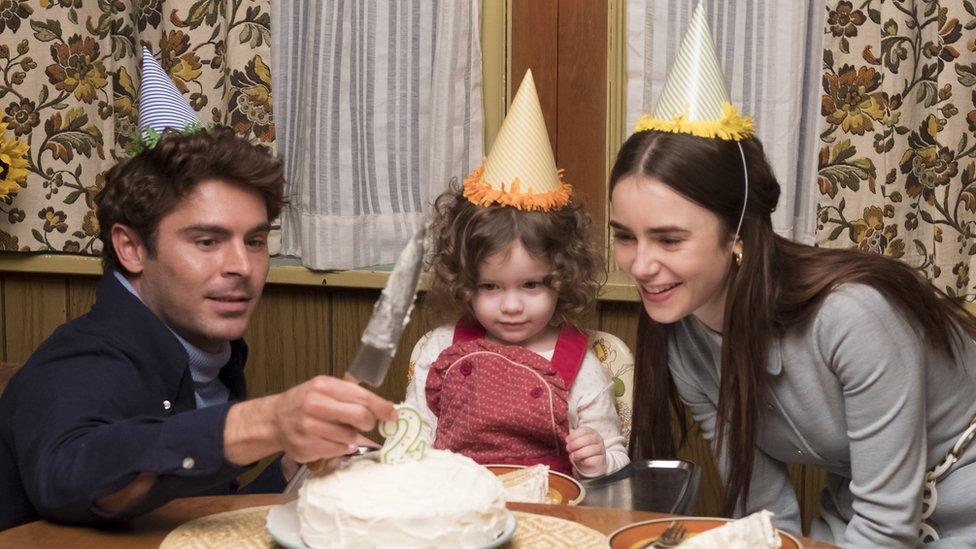
Efron's portrayal of Bundy won praise when it debuted at Sundance Festival
But for her, knowledge has meant power.
"I read every book and saw everything I could read and see about him," she says, while acknowledging others may have coped differently.
Efron has adopted Bundy's curls and signature smile for the role - and bears an uncanny resemblance to the killer.
"When Hollywood makes a movie they want it to sell, they want people to see it," says Kathy, speaking from New Orleans, where she now lives.
"Bundy showed them what he wanted them to see - he was always in control… Zac Efron - he's playing a part - he's an actor. He's doing this the way he was, the way they perceived Bundy."


You can hear more on this story on the Beyond Today podcast on the BBC Sounds app or online on the podcast's website from 16:00 GMT on 1 April.

Kathy says she attempted to contact the studio when she heard about the production, but assumes the email was lost among general enquiries.
She admits that she can't imagine watching as a relative of one of the 30 women and girls he is known to have killed.
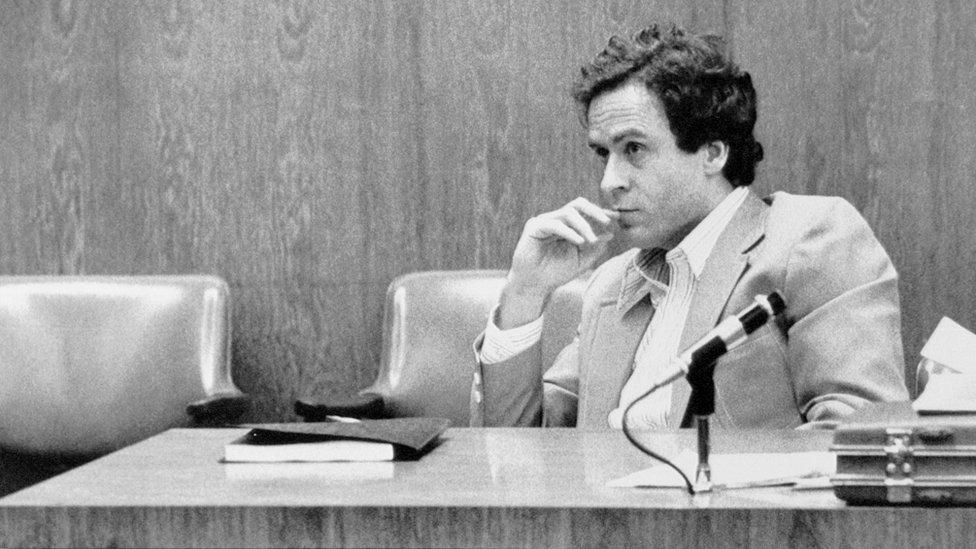
Kathy went on to testify against Bundy at trial
"To me they're the heroes during this, having to endure this publicity," she says.
She hopes the movie reflects the victims more than the trailer alludes.
"I don't know how far they dive into the victims," Kathy says. "So without seeing it and if they don't do the victims right - then maybe I'll be pissed."

The community
Wisconsin has the unenviable reputation of being home to some of America's most notorious ever crimes.
Manitowoc County sits on the state's eastern shore. It houses 80,000 residents but is famous around the world for just one - Steven Avery.
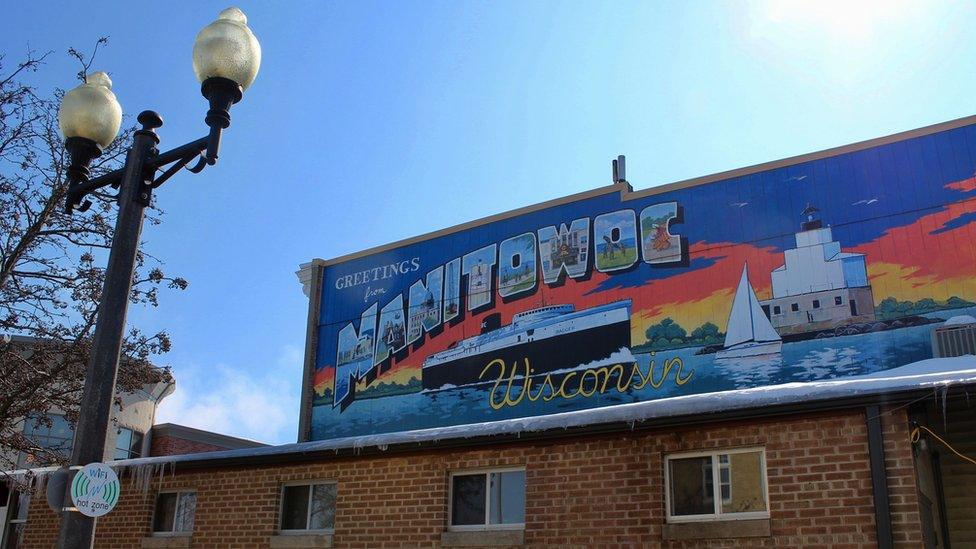
A mural welcomes visitors and celebrates the city's heritage

Manitowoc borders Lake Michigan and is a hub for manufacturing
A Netflix series charting Avery's wrongful conviction on sexual assault charges and re-incarceration for murder became a sensation on its December 2015 debut.
Hundreds of thousands of people have since signed petitions demanding his and his nephew's acquittal. A second series has already been released and legal appeals are ongoing.
A hangover from an unusually cold winter means snow is deep on the ground in Manitowoc in early March.
Understandably, perhaps, local officials seem reluctant to speak to yet another journalist.
The international spotlight has brought uncomfortable attention to the county and its city namesake.
Now, tourists drive over to the Avery family's Salvage Yard to take selfies. A firefighter tells me the local police have been forced to moderate Facebook comments because of abuse. I'm told threats have forced other officials off social media altogether.
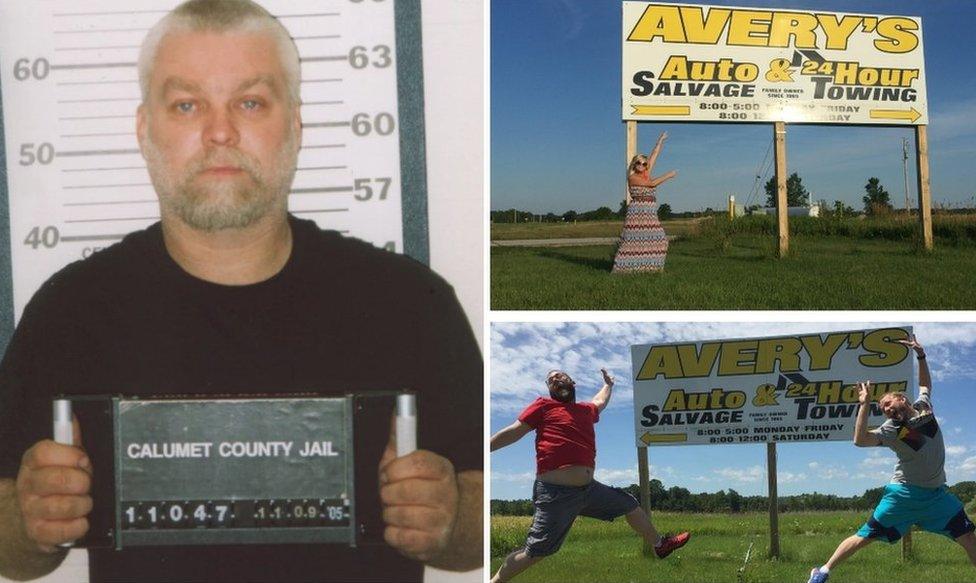
The entrance to Steven Avery's property has become an attraction for visitors
One Manitowoc resident determined not to stay silent is Jason Prigge.
As a businessman working around the country, he says the final straw came when a client introduced himself and asked: "Well, did he do it?" in reference to Avery.
Since then, he and his wife Tina have made it their mission to change the outside world's perspective of Manitowoc. They set up an online web series, The Coolest Coast, to showcase positive aspects of the community like local businesses.
Tina describes the Avery case as a "freak anomaly" and like others I spoke to, points out the Avery property is actually miles outside the city of Manitowoc.
"Reporters come in or somebody from Hollywood comes in to make a show and they get to leave without delving in and really learning who this community is or what it has to offer," Tina says. "To them it's just a name, it's just a story."
"Imagine if you have a bunch of TV crews park outside of your house and they look at your house and they judge you because of one cracked window," Jason says about the negative attention.
"They never talk to people that live in the house, but they just look at the house from the outside."
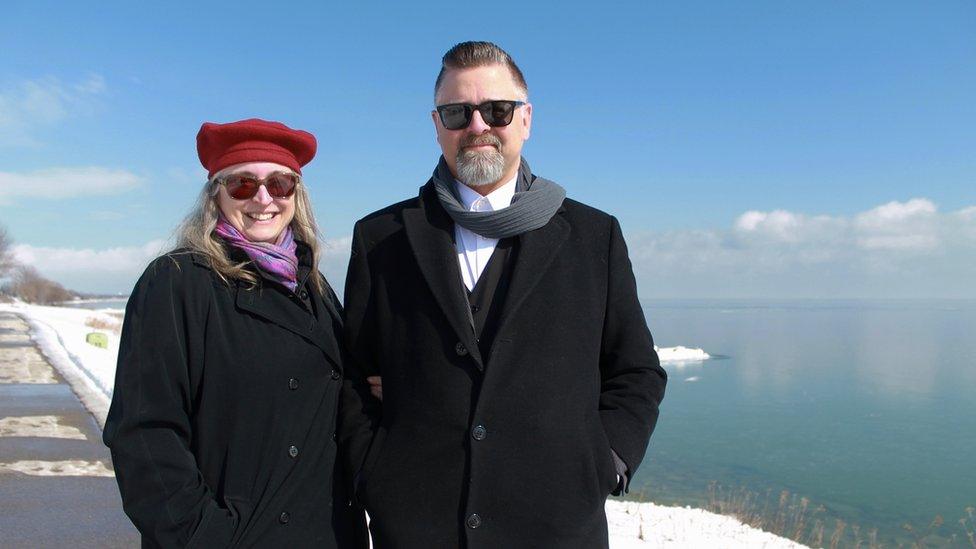
Tina and Jason come from a background in civil service and marketing
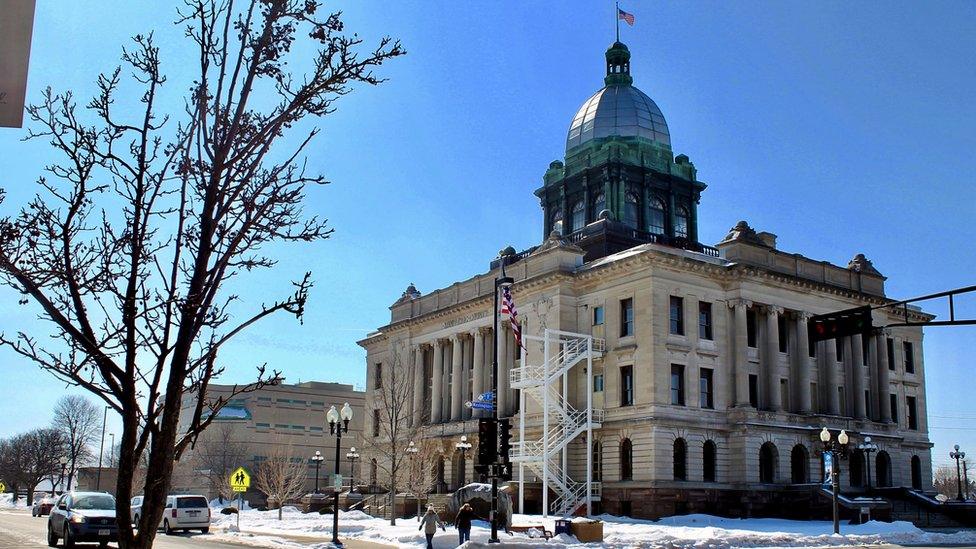
The city has seen reporters come from around the world
The couple are keen to show off the area and in the cold weather, much of the river is still frozen and has a sparkly glaze.
The city's skyline is dominated by industry and a historic courthouse I recognise from the show, but is otherwise full of quaint local businesses like coffee shops and boutiques. It's a postcard image I didn't expect.
They urge people like me not to judge the county and all of its residents from the documentary.
"The cameras and reporters leave but what they've left here is a stain which we're trying to scrub," Jason says of the lasting damage.

The business
Eighty miles south of Manitowoc is Milwaukee - a city known best for its beer and baseball.
But it is also a destination high on the list for America's biggest true crime fanatics.
The Cream City Cannibal tour takes visitors around Walker's Point - the area where serial killer Jeffrey Dahmer lured some of his victims from gay bars.
Its website boasts the tour is "so gruesome that it was banned from Groupon twice".
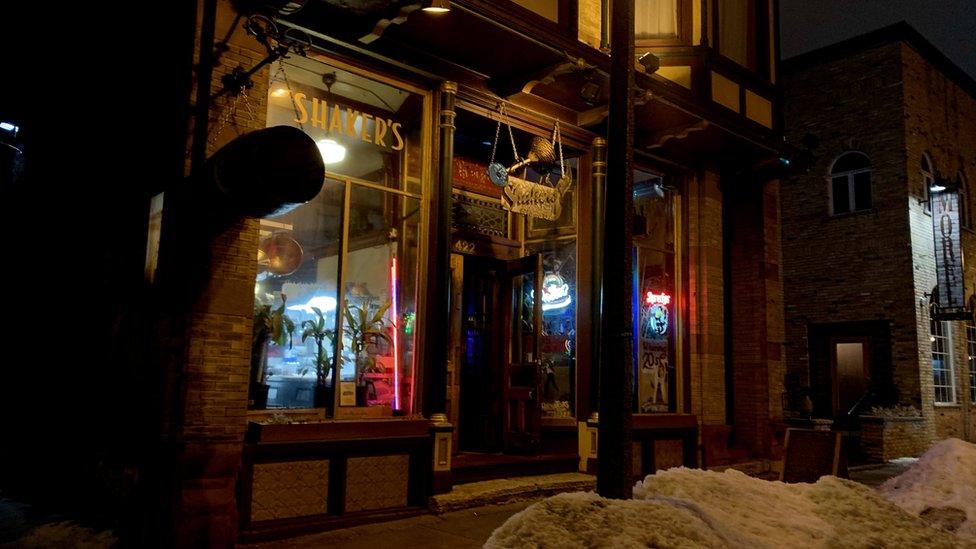
The tour's owner insists nothing could change his mind about his business
When it launched, local media covered a protest by victim's families. Critics said it was too soon because the crimes were still in living memory for many.
The tour leaves from Shakers - a bar in the centre of the old gay district. Once owned by the Capone family as a speakeasy and brothel, the location has a dark history of its own.
Current boss Robert Weiss bought it in the 1980s and runs a number of ghost tours from the venue. He says he got the idea for a Dahmer tour when people he met travelling made reference to the killer after he introduced himself as a Milwaukee-native.
Bob also knew the crime well because local police frequented the bar and Dahmer even visited himself.
"I served him drinks for five or six months as he periodically came in."
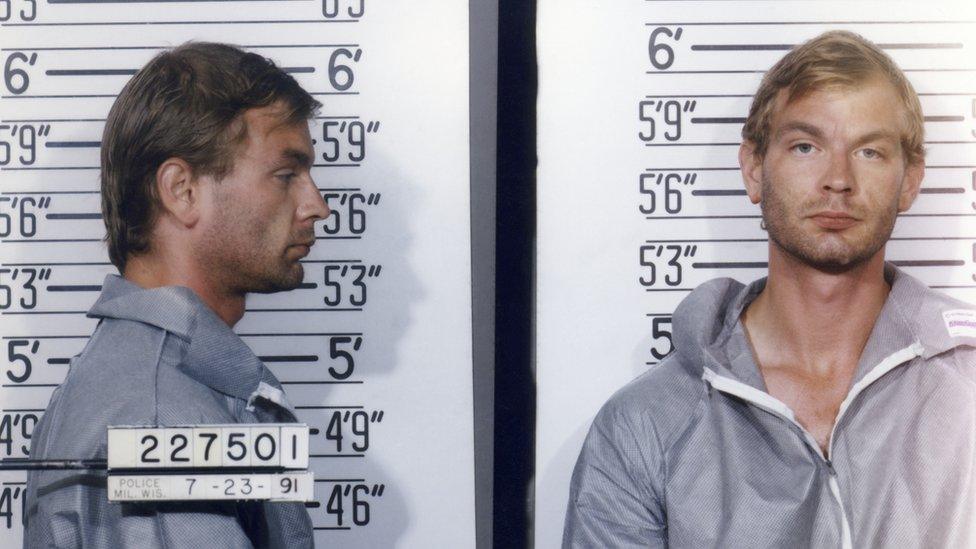
Dahmer was arrested in 1991 and was murdered in prison three years later
About 12 people take the tour on a Saturday night - the weather is freezing cold and it rains and snows throughout.
Those attending are mostly true crime super-fans, but also include a family and a couple celebrating their anniversary.
A guide talks through the serial killer's upbringing, alcoholism and journey towards violence.
Dahmer, who admitted killing 17 boys and men, is considered one of the most heinous criminals in US history.
His murders and cannibalism are described in grisly detail by our guide, who points out infamous locations along our walk.
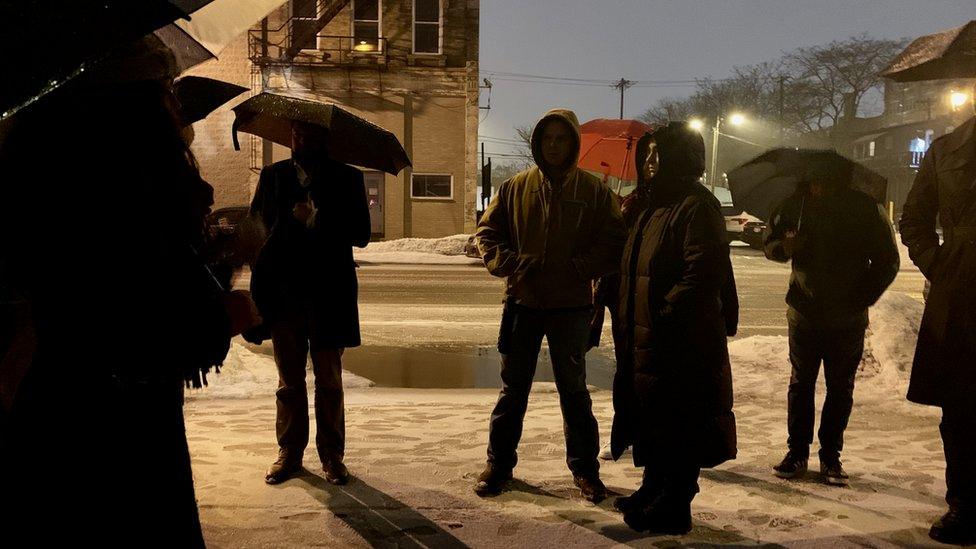
Organisers says some family members of victims have been on the tour
The information is disturbing, but not worse than what you may hear on any Dahmer documentary.
Bob insists the tour has historical and educational value, but I notice his bar also sells T-shirts, which feels at odds with that.
"Of the thousands of shirts that we have sold with that likeness on, have we had anyone complain? We have not," Bob says.
He rejects the assertion they are incendiary, and insists they only started making them because of unprecedented customer demand.
"I think if you are talking about things that are in poor taste, there's any number of other things that would go above and behind what the shirt is," he says, pointing to people who buy morbid artefacts like Charles Manson's artwork.
He also says that he rejected other bad-taste merchandise options, like cannibal-themed food.
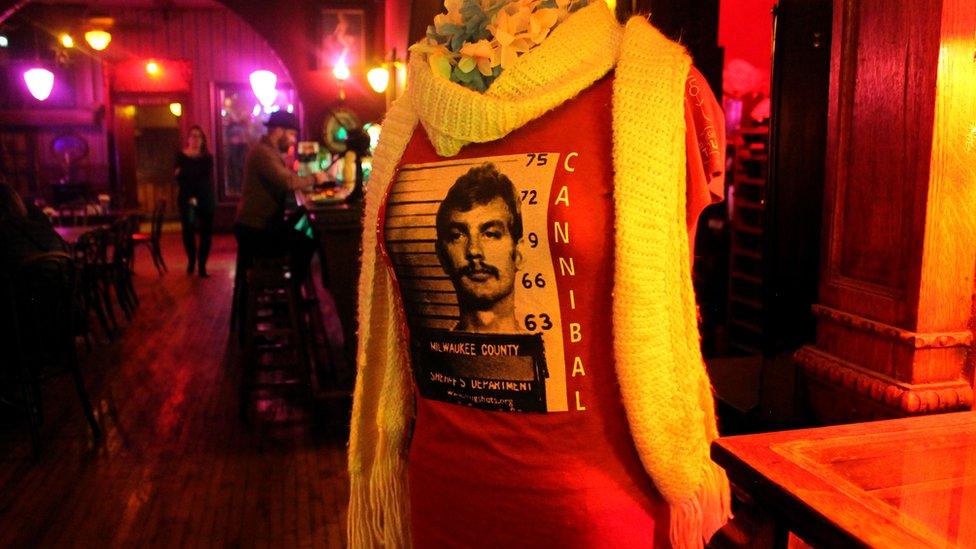
Their "Milwaukee Cannibal" shirt also has "Dahmer 17" on the back
Those attending the tour disagree that it's in bad taste or comes too soon.
"I've always grown up knowing about it," says one tour-goer named Alex who is in his 20s. "I think it's just part of our history and rather than hide it and keep it in the background, I think it's important for people to know about it so they can try and avoid it in the future."
Another, Melissa from Illinois, had already been on the tour before.
"I don't think it's disrespectful to the families," she says. "I think it's more of a way of remembering the victims instead of them being forgotten."
She, like me, admits watching a lot of true crime. She believes the addictive nature of streaming services is behind the boom in their popularity.

The experts
Deborah Allen has seen a "huge jump" in audience interest over the last few years.
She is vice-president of programming at Jupiter Entertainment - one of the biggest producers of true crime television in the US.
The company started making murder shows back in 1998, despite initial hesitancy from TV channels.
"It used to be that the networks saw true crime shows as their dirty little secret," she says.
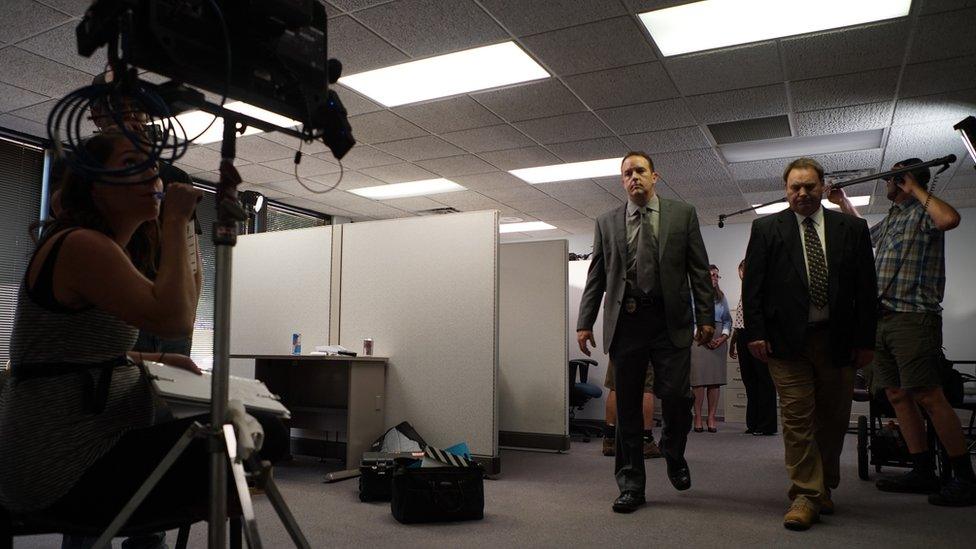
Jupiter Entertainment's shows include titles like Snapped - which has had 24 series
In the last decade a number of dedicated 24-hour crime channels have sprung up in the UK and US.
High-budget series may have gone mainstream but there is still a mass of other content made to fill these network schedules too.
The demand means Jupiter now makes about 200 hours of crime shows a year - fuelled by researchers who comb through news stories from around the country.
Deborah says they only cover cases that have been resolved in court, and thinks many viewers take comfort in seeing justice served.
She also says their company listens to victims' families if they object to a case being covered.
But the recent public distress from the mother of James Bulger about a film made about her son's murder shows the family's view does not always prevail.
It's a similar story behind other popular shows too.
The McCann family did not contribute to a new series about their daughter's disappearance and Theresa Halbach's family have never taken part in Making a Murderer.
The loved ones of 1999 murder victim Hae Min Lee said the attention from Serial "reopened old wounds" for their family. Despite this, HBO have adapted that case into a new documentary series - The Case Against Adnan Syed - which follows on from where the record-breaking podcast took off.
Serial, like many other popular true crime series, focuses on casting doubt on a conviction.
This format has an obvious draw for any audience - allowing them to play detective for themselves.
Some programme makers, including from HBO's The Jinx, have even uncovered new evidence that prosecutors say have helped with cases.
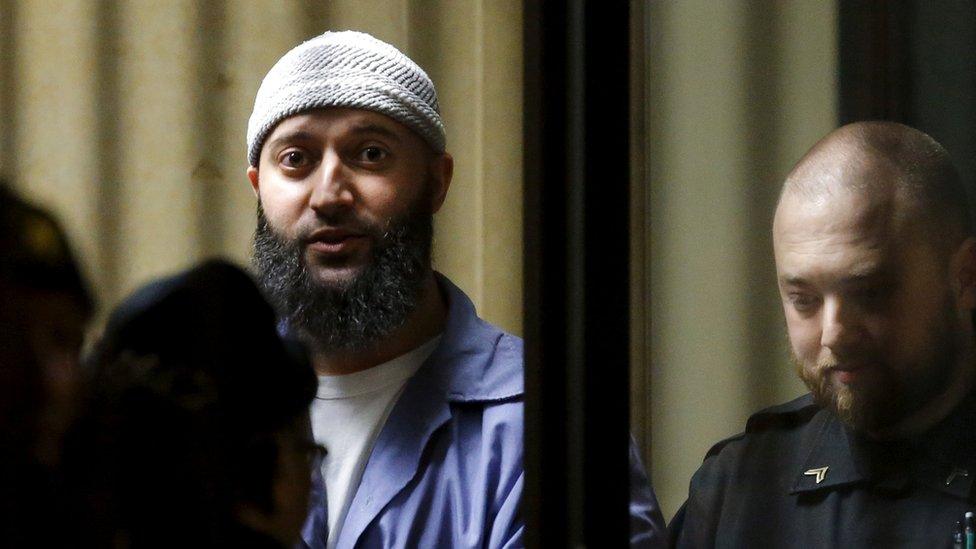
The Case Against Adnan Syed started in March on HBO
True crime's growing popularity means big business in other areas too. There's now young YouTube influencers covering stories and in the UK, a new glossy monthly crime magazine was recently announced.
In the US, thousands attend CrimeCon every year - an event where fans pay hundreds to see experts and presenters from their favourite series.
A reporter from the New York Post pointed out most of last year's attendees were female, external - and Bob in Milwaukee has found the same with his Dahmer tour. He describes his average customer as college-educated women aged 25-37.
So why is it that we are so intrigued - is it pure morbid curiosity?
British psychologist Emma Kenny, who regularly features in crime documentaries, agrees that we have a natural tendency to be voyeurs and be attracted to darker things.
This, of course, is nothing new and can be seen throughout human history.
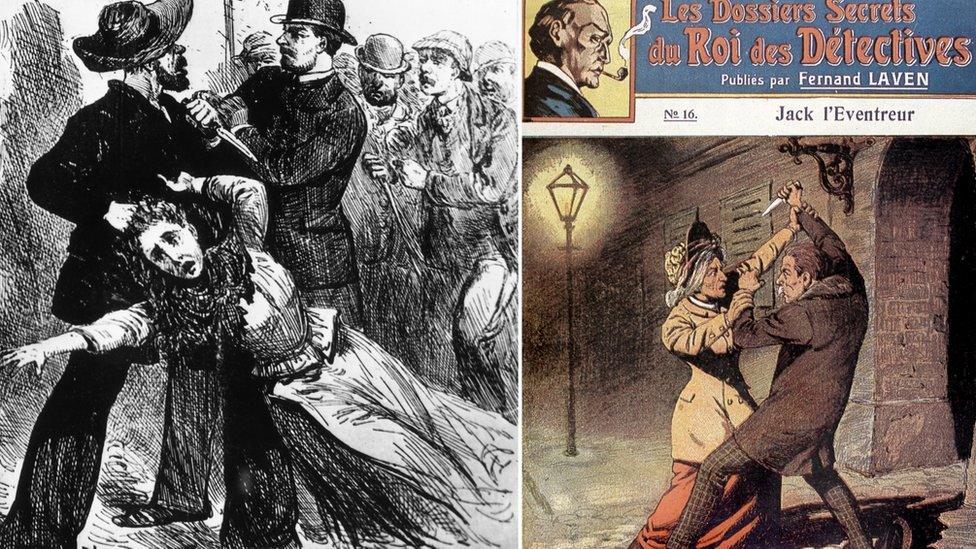
Historical cases, like Jack the Ripper, have long-captured public fascination
She points to crime's prevalence in other forms of entertainment too - including the dramas we watch and the books we read.
Emma says that watching crime shows can trigger chemical reactions in our bodies while we watch, while also affirming our moral views about right and wrong.
She says an interest in the genre is nothing bad but warns people, including myself, about watching too much.
"I think that for anybody who's watching this kind of stuff you really need to know why you're watching it, I think. Because you don't want to desensitize yourself too much," she tells me.
"Life is best spent around good people doing good things, exposing yourself to the best things in the world that you can expose yourself to… we should never be desensitized to the horror."
All photographs copyright
- Published25 January 2019
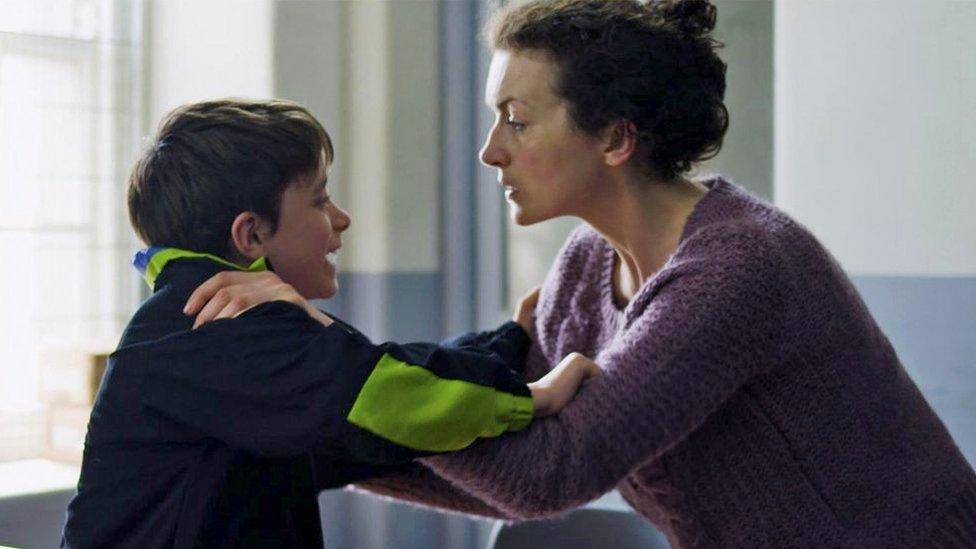
- Published18 October 2018
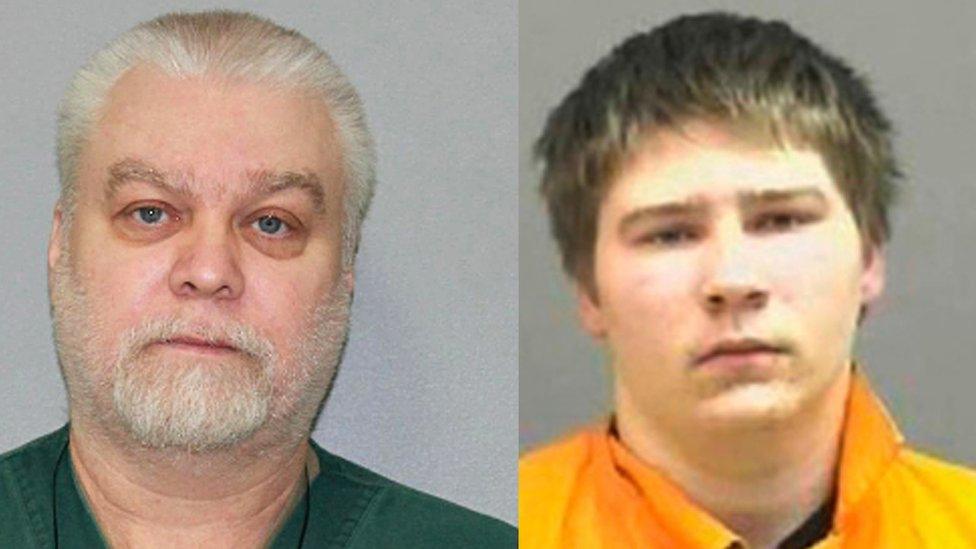
- Published9 March 2019
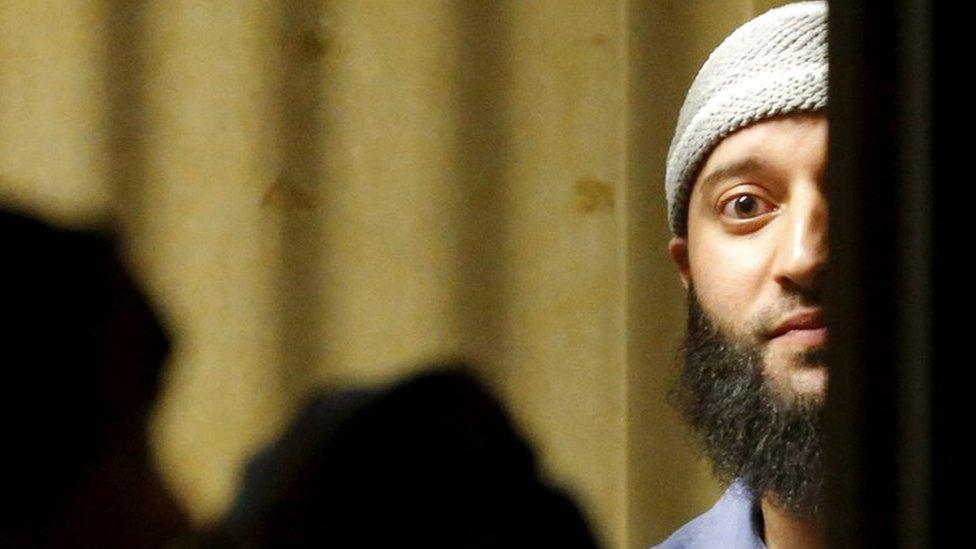
- Published9 October 2018
